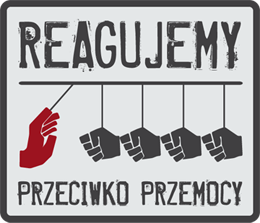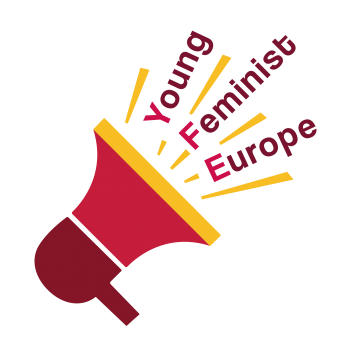Poles do not want to know: One of the fundamental issues surrounding violence against women in Poland is a lack of sensitivity combined with a general aversion to the subject.

This year, matters of violence were widely discussed in Poland because of the ratification of the Convention on preventing and combating violence against women (the so called anti-violence Convention). A huge number of myths and controversies grew around it. Politicians from all sides of the political spectrum held lively discussions on the advantages and disadvantages of the Convention. Commentators were turning to the opinions of lawyers, sociologists and other experts in order to convince the audience of their views. I will not quote the arguments in order to avoid further debate but what shocked me the most in this whole dispute was a lack of understanding of the simplest terminology, in-depth debate and analysis. In general, the public relied on the messages they were fed, rather than the content of the Convention. They were told it would stop women from giving birth or make boys dress up as girls. Feminist groups were wringing their hands and I myself was often shocked by the ignorance of the public.
One of the fundamental issues surrounding violence against women in Poland is a lack of sensitivity combined with a general aversion to the subject. Poles do not want to know. They prefer to listen to colourful statements in the media and to let others decide for them. It is hard for victims to find support in society which does not even try to understand this tragic phenomenon. It would not take a lot for this to change. There is no need to immediately become a volunteer in a feminist organization or to enrol in a gender studies course. Just a small amount of empathy and a simple willingness to understand and to try to put oneself in the victims’ place can make a difference. If this was made a reality, many harmful social convictions could be easily eradicated, easing the victims in the pursuit of their claims. Some of them retained heavily in my memory and I would have liked to share them here. Each one of them could be an entire article, or maybe even a book, and although I do not mean to pretend to be an expert, if these few simple sentences will spur even one person into thinking it’s definitely worth it.
Why doesn’t she leave him?
So often we hear ‘why doesn’t she leave him? Apparently she likes it’, “she chose him herself”. How easy it is to shift the responsibility to the victim and to make it even harder for women to remove themselves out of violent relationships, as a result of this social hostility. Shadowing the public opinion, victims start to blame themselves for their current situation. They feel helpless and alone, deprived of the support of society which prefers to judge them. They fear that alone they will not manage. They are afraid for their children’s future, especially if it’s a man who is the sole breadwinner in the family. Perpetrators of domestic violence often threaten their victims that they will take their children away, they try to convince them that they will have nowhere to go and that they will not have enough money to make a living. In the insensitive society where hurtful “expert” comments are coming from all sides, such a vision becomes the most probable for the victims.
Invisible violence
In Poland, domestic violence is identified only with wounds and bruises. Apart from the fact that many perpetrators of physical violence are very careful not to create any visible signs on their victim’s body, a huge amount of violence is not committed with force. The problem of psychological violence and its disastrous implications is not “thrilling” enough and therefore is rarely discussed in Poland and economic violence is poorly understood. Bear in mind that this violence is not limited only to the non-recovery of alimony (although in Poland that problem is huge!), economic violence can be a daily torment during regular activities. What does it look like? A woman being forced to account for every single penny. A woman not having enough resources to meet her needs. A woman constantly hearing comments about being extravagant when buying a more expensive washing detergent. Even if a man is the only earner in the house, it does not give him the right to make decisions on financial matters alone! If a woman does not work (or earns less) to look after the children and the home then she has the same contribution to its prosperity, as a man earning money. This is what an equal relationship looks like – both parties bring something and they share what they have gathered together.
Gender monster
In concluding this article I cannot forget about the ‘gender monster,’ an extremely intriguing phenomenon in Poland. I think that readers from Western Europe may be surprised, but in Poland discussions about gender return from time to time in increasingly colourful forms. What is so terrible with this term ‘gender’? Well nothing. All this noise is only about giving people the right to decide for themselves. Gender (the so called socio-cultural sex) is everything that is not biologically related to the sex but imposed by society and culture. Although there is nothing binding us to these stereotypes, they have existed for so long that we recognize them as the only legitimate way of conducting our behaviour. What is worth noting is that these social convictions affect not only women but also men. As an example men are told that they should be firm and the sole breadwinner whilst being incapable of rearing children. Whereas a woman should reduce hours (and preferably quit) professional life and devote herself to motherhood whilst being subtle and sensitive. The list goes on. This is not to say that this way of life is wrong or forbidden, it is about being able to make decisions independently, not under societal pressures to conform. What is so terrible with a woman who has developed professionally and supported our economy? Or with a man who decides to become a florist instead of a welder. Or with a man who stays at home to take care of his children who he loves? It seems to me – nothing.
Nie chcemy wiedzieć: jednym z głównych problemów dotyczących przemocy wobec kobiet w Polsce jest brak wrażliwości połączony z ogólną niechęcią do samego tematu.

W tym roku kwestie przemocy były w Polsce szczególnie głośne w związku z ratyfikacją Konwencji o zapobieganiu i zwalczaniu przemocy wobec kobiet i przemocy domowej, zwaną powszechnie Konwencją Antyprzemocową. Wokół aktu narosła ogromna ilość mitów i kontrowersji. Politycy ze wszystkich stron sceny politycznej burzliwie (nawet bardzo…) dyskutowali nad wadami i zaletami konwencji. Komentatorzy przerzucali się opiniami prawników, socjologów i innych ekspertów, chcąc przekonać publiczność do swoich racji. Nie będę tutaj przytaczać argumentów, ani wzniecać kolejnych debat. To co mnie najbardziej poruszyło w tym całym zamieszaniu to brak zrozumienia dla najprostszych pojęć, brak rzeczowej dyskusji i poważnej analizy. Większość społeczeństwa nie zainteresowana treścią samej konwencji z przestrachem słuchała, jak to przez nią kobiety przestaną rodzić dzieci, a chłopcy będą przebierani za dziewczynki. Środowiska feministyczne załamywały ręce. Sama byłam niejednokrotnie zszokowana ignorancją i niewiedzą osób publicznych.
Jednym z podstawowych problemów dotyczących przemocy wobec kobiet w Polsce jest ogromny brak wrażliwości połączony z ogólną niechęcią do samego tematu. Polacy nie chcą wiedzieć. Wolą słuchać barwnych wypowiedzi i pozwalać innym decydować za siebie. Ofiarom ciężko jest znaleźć oparcie w społeczeństwie, którego ogromna część nawet nie stara się zrozumieć tego tragicznego zjawiska. Aby to zmienić wcale nie potrzeba tak wiele. Nie trzeba od razu zostawać wolontariuszem w feministycznej organizacji, ani zapisywać na kurs z zakresu gender studies. Wystarczy odrobina empatii i prostej chęci zrozumienia oraz próby postawienia się na miejscu ofiar. Wiele krzywdzących przeświadczeń społecznych można by dzięki temu łatwo zwalczyć ułatwiając ofiarom dochodzenie swych praw. Kilka z nich najbardziej zapadało mi w pamięć i chciałabym się nimi tutaj podzielić. O każdym z nich dałoby się napisać cały artykuł (a może nawet książkę). Nie pretenduję tutaj bynajmniej do roli ekspertki. Jeśli jednak tych kilka prostych zdań pobudzi choć jedną osobę do myślenia to zdecydowanie warto.
Czemu ona go nie zostawi?
Jakże często słyszy się ,,Dlaczego po prostu od niego nie odejdzie? Najwidoczniej to lubi”, ,,Sama sobie takiego wybrała”. Jakże łatwo jest przerzucić odpowiedzialność na ofiarę. I to właśnie ta społeczna wrogość jest jednym z (wielu) czynników sprawiających, iż kobietom tak ciężko jest wyjść z przemocowej relacji. Za opinią publiczną zaczynają same siebie obwiniać za swoją obecną sytuację. Czują się bezradne i osamotnione, pozbawione wsparcia społeczeństwa, które woli je oceniać. Obawiają się, że samodzielnie sobie nie poradzą. Boją się o przyszłość swoich dzieci zwłaszcza, jeśli to mężczyzna zajmował się zarabianiem pieniędzy na dom. Sprawcy przemocy często grożą ofiarom, że odbiorą im dzieci, wmawiają im, że nie będą miały się gdzie podziać, że nie będą miały pieniędzy na życie. W obojętnym społeczeństwie, gdzie zewsząd słyszy się krzywdzące komentarze ,,ekspertów” taka wizja wydaje im się niezwykle prawdopodobna…
Przeźroczysta przemoc
W Polsce przemoc domowa utożsamiana jest wyłącznie z ranami i siniakami. Pomijając już fakt jak wielu sprawców przemocy fizycznej bardzo uważa, aby na ciele ofiary nie zostały żadne widoczne ślady, to ogromna ilość aktów przemocy nie jest popełniana z użyciem siły. Problem przemocy psychicznej i jej fatalnych implikacji jest mało ,,medialny” i dlatego w naszym kraju rzadko poruszany, a przemoc ekonomiczna jest kiepsko rozumiana. Należy pamiętać, że przemoc ta nie ogranicza się tylko do nieściągalności alimentów (choć w Polsce problem ten jest ogromny!). Z przemocą ekonomiczną można mieć do czynienia także na co dzień, podczas zwykłych czynności. Czym się objawia? Tym, że kobieta musi zdawać relację z każdego najdrobniejszego wydatku. Nie posiada środków na osobiste potrzeby. Musi wciąż wysłuchiwać komentarzy na temat swojej rozrzutności, gdy kupi droższy proszek do prania. Nawet, jeśli to mężczyzna jest jedyną osobą zarabiającą w domu nie daje mu to prawa do samodzielnego decydowania o kwestiach finansowych! Jeśli żona nie pracuje (bądź zarabia mniej), by opiekować się dziećmi i domem to ma ona taki sam wkład w jego dobrobyt jak mężczyzna zarabiający pieniądze. Na tym polega związek partnerski – ty coś wnosisz, ja coś wnoszę, a całością dzielimy się razem.
Genderowy potwór
Kończąc artykuł nie mogę nie wspomnieć o tym szalenie jaskrawym w Polsce zjawisku. Myślę, że czytelników z Europy zachodniej może to zdziwić, ale w Polsce dyskusja o nim powraca co jakiś czas w coraz bardziej barwnych formach. Nie chcę tutaj wszczynać kolejnej. Co jest takiego straszliwego w tym słynnym ,,gernderze”? Otóż nic. Cały ten hałas dotyczy wyłącznie prawa ludzi do decydowania o sobie. Gender (zwana płcią społeczno-kulturową) to wszystko to co nie jest biologicznie związane z daną płcią, ale narzucane jest przez społeczeństwo i kulturę. Choć w tych stereotypach nie ma nic naturalnego, to istnieją tak długo, że uznajemy je za jedyny słuszny wzorzec postępowania. Co ważne, te społeczne przeświadczenia nie dotyczą tylko kobiet, ale i mężczyzn. Przykład? Mężczyzna powinien być stanowczy i zarabiać na dom. Matka powinna ograniczyć (a najlepiej porzucić) życie zawodowe i poświęcić się macierzyństwu. Mężczyźni nie potrafią wychowywać dzieci. Kobieta powinna być subtelna i czuła. I tak dalej, i tak dalej… Co ważne, nikt nie mówi, że nie można tak właśnie żyć! Chodzi jedynie o możliwość podejmowania decyzji samemu, a nie pod presją całego społeczeństwa. A co jest takiego potwornego w kobiecie, która rozwija się zawodowo wspierając naszą gospodarkę? Albo w mężczyźnie, który zamiast spawaczem postanowi zostać florystą? Albo zostanie w domu, by zająć się swoimi dziećmi, które bardzo kocha? Mnie się wydaje, że nic.


![Action towards ending violence against women in Serbia – Akcija za borbu protiv nasilja nad ženama u Srbiji [EN/SR]](https://usercontent.one/wp/www.youngfeminist.eu/wp-content/uploads/2015/11/UNDP_SRB_VAW-150x150.jpg?media=1744965719)

[…] against women in Poland, Latvia and in […]